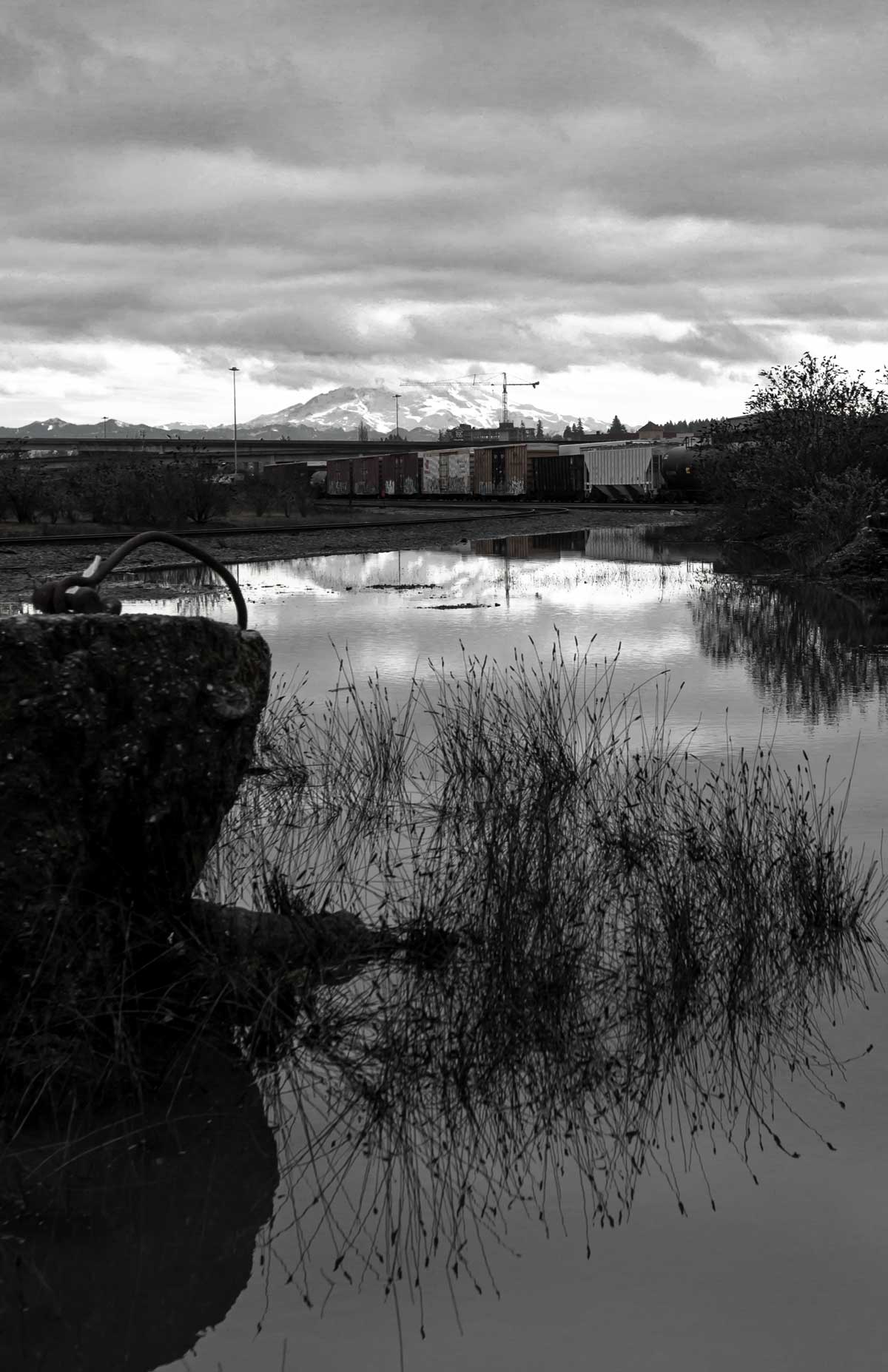The Human Becoming: A Lenten DevotionalExemplo


Second Week of Lent | Born | Rev. Nate Sutton
There’s a poem printed on an old yellow utility box on the southeast corner of 21st and Jefferson here in Tacoma that reads:
Heaven is here. And earth. The space between is thin. A layer of dust separating the deep unknowns of Commencement Bay from the green metal sign at the Lakewood City Limits. I hear it told that angels hover above Lincoln Hardware on G Street, coveting the Barlow knives under the glass counter….
It’s an experiment with the old suspicion that “above” and “below” constitute a false dichotomy, that divine and material aren’t so starkly divided. But is it a delusion? “Earth’s crammed with heaven” is a beautiful thought; still, what are we to make of all the hell?
Margaret Atwood’s The Handmaid’s Tale, adapted for television, is a near-future dystopia depicting a repressive western theocracy marked by the subjugation and violation of a minority of women who are still capable of bearing children. One of these women, June, kneels day after day at the hospital bedside of a fellow handmaid who, though brain dead, is being forced to carry her pregnancy to term. June’s compulsory vigil eventually takes a toll on her sanity as she begins to make out an ’80s pop favorite in the tones and cadences of the life support system:
“Don’t you hear it? Ooh, baby, do you know what that’s worth? Ooh, heaven is a place on earth.”
The tragedy, of course, is that the society June’s captors have built is nothing like heaven, no matter how purportedly pious their motives are.
If heaven is a place on earth, then what does it look like?
“No one can see the kingdom of God,” Jesus tells the seeker Nicodemus under the cover of night, “without being born from above.” Another translation of that last phrase, “without being born again,” is so laden with religious baggage that it’s hard to hear this week’s word in a fresh way. Born again has become insider language to define legitimate spiritual experience and practice, a shibboleth to mark the boundaries of inclusion. No one can see heaven on earth, in other words, without the requisite stamp of approval. You’re holy or you’re not.
But, if there’s one thing we all have in common, it’s the experience of being born. Jesus insists on pushing that experience to its fullest meaning. To be “born from above” is to know God as a heavenly Bearer, conceiving, carrying, and giving birth to each of God’s beloved, then clutching us all together in a mother’s embrace. The kingdom of God is labor and delivery, and we are infants waiting to open our eyes.
When we do, the light that floods in can be disorienting, but ultimately it shows us how “God so loved the world.” No longer remote and transactional, divine love is suddenly immediate and personal, the brimming love of a new parent. It longs for both deep connection and our true freedom. It never ends. “Our highest Father… who is ‘Being,’” writes Julian of Norwich, “has always known us and loved us…in this love our life is eternal…in this love is our beginning.”
To rest in this love, and to be joined with all that is dear to God, is to see the kingdom, the world as it should be, even amid the world as it is, from the deep unknowns of Commencement Bay to the green metal sign at the Lakewood City Limits.
Dwelling Among Us
Reflection
Is there a word or phrase that stands out to you? What is it calling forth?
Discussion
How do you react to the image of heavenly childbirth? What experiences inform your reaction?
Public Action
Go for a walk in your neighborhood, or sit at a window for a time. As you take in your surroundings, look intently upon every person, every creature as a babe born of God, a heaven-sent sibling. Sense your deep connection to the whole world that God so loves.
Escritura
Sobre este plano

The Lenten journey is a counterintuitive journey to life by way of the cross. Each year at this time we are invited to turn and face those things from which we would rather run and hide. We walk to the cross where we experience the great unveiling and see things as they really are. We see God for who God is, and we discover ourselves for who we are.
More









